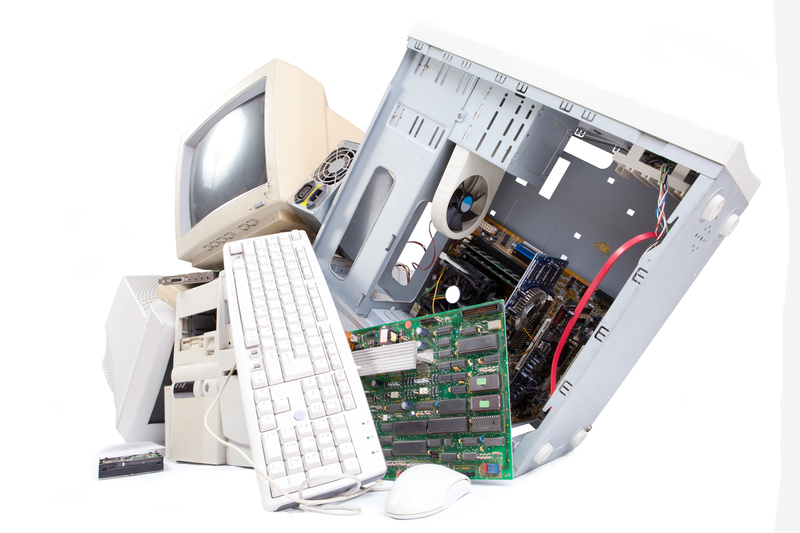Discover How to Save Money When Disposing Bulky Waste Items
Are you faced with the challenge of removing unwanted, oversized items from your property? Disposing of large and bulky waste can be daunting and expensive. Whether you're clearing out a home, downsizing, or just tackling spring cleaning, knowing how to save money when disposing bulky waste items can make all the difference to your wallet--and the environment.
In this comprehensive guide, we'll break down practical, actionable ways to reduce costs and stress when getting rid of those cumbersome items, including furniture, appliances, mattresses, garden debris, construction waste, and more. Let's explore the most cost-effective methods for bulky waste disposal today.

Understanding Bulky Waste: What Constitutes Bulky Items?
Before you seek out the most affordable disposal methods for bulky waste items, it's important to define what qualifies as "bulky waste." Typically, this term includes items that are too large to be collected by standard curbside collection:
- Sofas and couches
- Beds and mattresses
- Large appliances (fridges, washers, dryers)
- Wardrobes, dressers, and bookcases
- Carpets and large rugs
- Garden furniture, barbecues, and trampolines
- Home renovation debris and fixtures
Because of their size and composition, disposing of these large unwanted items often incurs extra costs and may involve special handling. But don't worry--there are numerous ways to save money when disposing bulky waste.
Proven Ways to Save Money on Bulky Waste Disposal
1. Take Advantage of Municipal Collection Services
Many cities and towns offer free or low-cost bulky item collection events, typically on a scheduled basis or by request. Here's how you can leverage these services:
- Check your local authority's website: Many council websites list scheduled collection dates and accepted items.
- Book in advance: Some areas require you to schedule bulky item pickups, often months ahead.
- Limit your load: Municipal collectors often limit the number of items or weight per pickup. Maximize your savings by gathering as much as they'll allow.
*Tip: Combine your disposal with neighbors or family to make full use of the allocation.*
2. Reuse, Repurpose, or Donate
Not all bulky items are destined for the dump. The mantra "one person's trash is another's treasure" holds true:
- Donate to charities: Many non-profits, like Goodwill or Salvation Army, will collect usable furniture and appliances for free.
- Give away online: Post on Freecycle, Facebook Marketplace, Craigslist, or local community groups.
- Be honest about item condition. Photos will help.
- Repurpose for DIY projects: Furniture can be upcycled or given a second life with some creativity.
*Saving Tip: Donating not only cuts your disposal costs, but also may qualify you for a tax deduction--check local regulations.*
3. Sell Your Bulky Waste Items
Why pay to dispose when you might EARN instead? List unwanted large items for sale if they're in decent condition. Try:
- Online marketplaces: eBay, Facebook Marketplace, OfferUp.
- Yard sales: Great for clearing multiple items at once.
- Local flea markets: Vendors are often on the lookout for unique or classic pieces.
*Money-Saving Tip: Be open to negotiation. Pricing items slightly less than retail or competitor prices moves them faster and saves you disposal fees.*
4. Schedule a Bulk Trash Pickup--But Compare Prices!
If municipal pickup isn't an option or is already maxed out, professional junk or bulky waste removal services will do the heavy lifting. However, prices vary dramatically, so it pays to:
- Get multiple quotes: Use comparison sites or call several local services directly.
- Ask about volume vs. item-based pricing: Some charge per truckload, others per item; select the best deal for your situation.
- Book off-peak: Some providers offer discounts for weekday or non-peak times.
- Bundle items: Many offer reduced rates for additional items per trip.
*Insider Tip: Check for coupons, Groupon deals, or first-time customer discounts when searching for cheap bulky waste pickup services.*
5. Haul It Yourself to a Local Facility
If you have access to a large vehicle, self-hauling to a landfill or recycling center is often the cheapest way to dispose of bulky waste. Before loading up, consider:
- Check item restrictions: Not all locations accept certain items, like mattresses, electronics, or hazardous waste.
- Weigh vs. flat fees: Some facilities charge by weight, others per item--calculate the cheapest option.
- Recycle when possible: Metal, electronics, and some wood can be recycled for less than landfill prices--sometimes for free.
*Capacity Tip: Organize a group dump run with friends or neighbors and split the cost--it's more eco-friendly and cost-effective!*
6. Rent a Skip or Dumpster--But Only if You Fill It
For major cleanouts or renovations producing lots of bulky waste, skip (or dumpster) rental can be economical. But beware: you only save if it's filled to capacity. Here's how:
- Choose the right size: Too large, and you pay for empty space; too small, and you'll need a second.
- Research local options: Compare rates among providers--prices vary by region and size.
- Share space: Neighbors or family may have items to contribute, making cost-per-person cheaper.
*Estimator Tip: Ask the company for help determining what size suits your load; overestimating is a common and costly mistake.*
Special Considerations: Bulky Appliance and Hazardous Waste Disposal
Proper Disposal of Appliances
Appliances like fridges, washing machines, and air conditioners contain refrigerants or electronic parts that need special handling. Illegally dumping these items is dangerous and expensive if you're fined. Save money and avoid penalties by:
- Contacting utility companies: Some offer free haul-away when you replace an old appliance.
- Checking manufacturer recycling programs: Brands like Whirlpool or GE often accept old items for responsible recycling.
- Exploring government schemes: Many regions have rebates for proper appliance disposal.
Handling Mattresses and Hazardous Materials
- Mattress recycling: Many junk collection companies charge extra for mattress disposal. Look for dedicated mattress recycling programs that are less expensive--or free during amnesty events.
- Hazardous waste: Paints, chemicals, and electronics require dedicated facilities. Most counties hold annual or quarterly hazardous waste collection days for free or a nominal fee.
How to Estimate Bulky Waste Disposal Costs Accurately
Ready to make a plan? You'll need to estimate your disposal costs. Here's a step-by-step process:
- Inventory your items: List every large item, its dimensions, and approximate weight.
- Research your local options: Call, click, or visit your city website and private haulers for rates.
- Compare and calculate: Factor in transportation, time, and the potential value of donating or selling.
- Explore free programs first: Prioritize donation, recycling, or subsidized municipal services whenever possible.
*Money-Saving Tip: If you're tackling a full house clean-out or renovation, package your items strategically--some items may qualify for free or discounted disposal in bulk.*
Top 5 Mistakes That Drive Up the Cost of Bulky Waste Disposal
Even with the best intentions, it's easy to end up paying more than necessary. Avoid these costly mistakes when disposing of large waste items:
- Procrastinating: Last-minute services often command higher prices and limited selection.
- Not separating recyclables: Mixing recyclables with landfill waste can increase fees and waste valuable materials.
- Ignoring free or community options: Giveaways, swaps, and recycling drives reduce both volume and expenses.
- Paying for unused skip space: Always estimate realistically and share the cost where possible.
- Violating disposal guidelines: Illegal dumping or improper disposal can result in hefty fines.

Your Checklist for Saving Money on Bulky Waste Disposal
- Assess if the item really needs disposal or could be reused, sold, or donated
- Check local council services, amnesty days, or subsidized pick-up events
- Shop around for quotes if you need private services
- Bundle your items and collaborate with neighbors for group savings
- Separate and recycle what you can to lower landfill fees
- Time your disposal to coincide with community events or off-peak times
Conclusion: Smart Strategies to Save Money When Disposing Bulky Waste Items
Disposing of large, unwanted items doesn't have to empty your wallet. By leveraging local programs, recycling and donation options, group collections, accurate cost comparisons, and strategic planning, you can significantly reduce your bulky waste disposal expenses. Not only will these tips save cash, but they also ensure you're acting responsibly for your community and the environment.
From exploring free collection days to selling or donating usable items, each strategy helps you discover how to save money disposing of large and bulky waste items. Take the time to plan, explore all available options, and make the most of resources in your area.
If you found this guide useful, share it with a friend or neighbor who needs help with bulky waste disposal. Every step towards smarter savings makes a difference, both financially and environmentally!